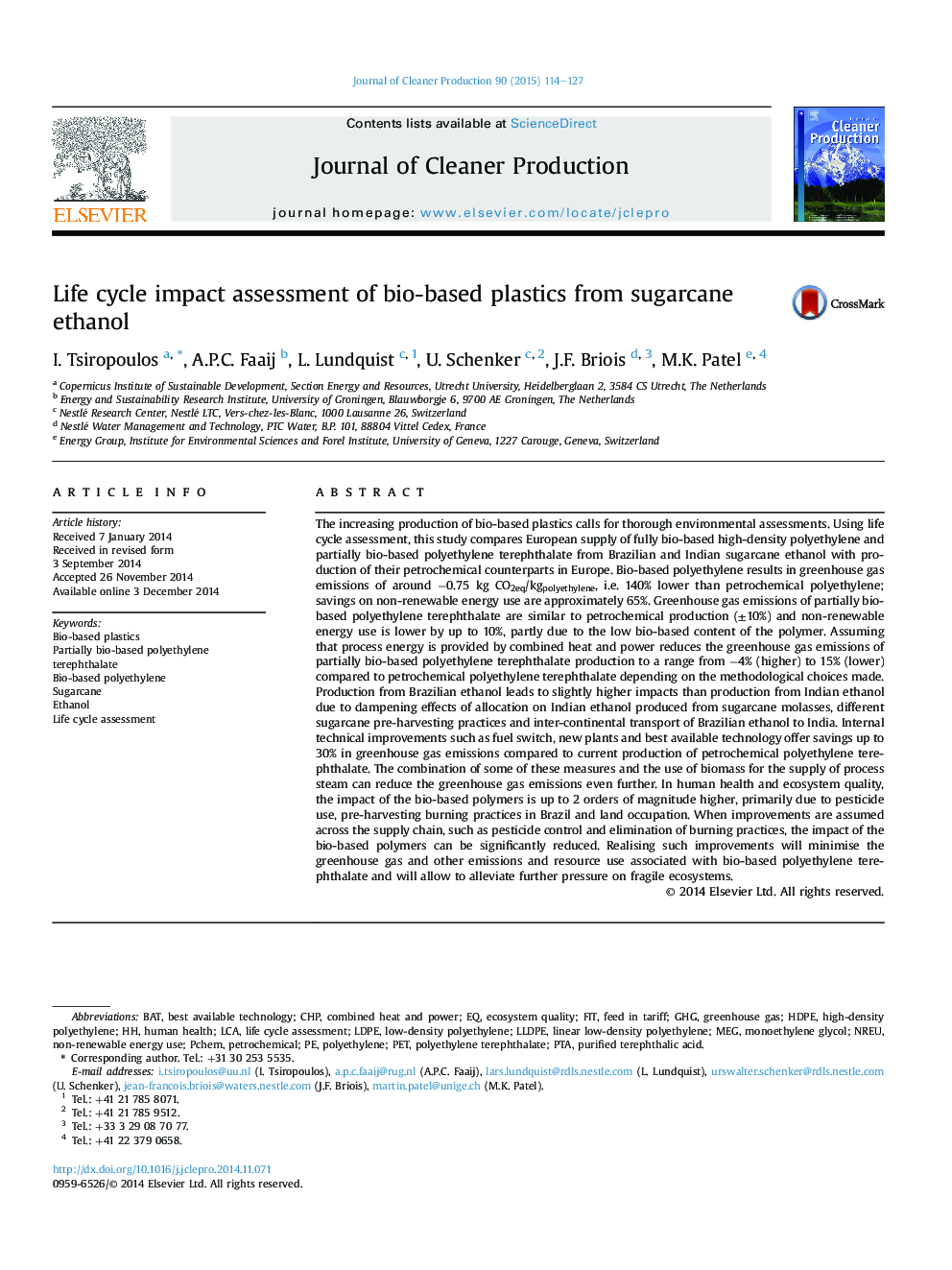| کد مقاله | کد نشریه | سال انتشار | مقاله انگلیسی | نسخه تمام متن |
|---|---|---|---|---|
| 1744668 | 1522156 | 2015 | 14 صفحه PDF | دانلود رایگان |
• The environmental performance of fully bio-based polyethylene and partially bio-based polyethylene terephthalate is analysed.
• Seven impact categories are assessed with four different allocation approaches.
• Greenhouse gas emissions and fossil energy use of bio-based polymers are equal or lower than their petrochemical counterparts.
• The petrochemical polymers perform better than their bio-based counterparts for human health and ecosystem quality.
• There is untapped potential allowing further improvements in the environmental performance of the bio-based polymers.
The increasing production of bio-based plastics calls for thorough environmental assessments. Using life cycle assessment, this study compares European supply of fully bio-based high-density polyethylene and partially bio-based polyethylene terephthalate from Brazilian and Indian sugarcane ethanol with production of their petrochemical counterparts in Europe. Bio-based polyethylene results in greenhouse gas emissions of around −0.75 kg CO2eq/kgpolyethylene, i.e. 140% lower than petrochemical polyethylene; savings on non-renewable energy use are approximately 65%. Greenhouse gas emissions of partially bio-based polyethylene terephthalate are similar to petrochemical production (±10%) and non-renewable energy use is lower by up to 10%, partly due to the low bio-based content of the polymer. Assuming that process energy is provided by combined heat and power reduces the greenhouse gas emissions of partially bio-based polyethylene terephthalate production to a range from −4% (higher) to 15% (lower) compared to petrochemical polyethylene terephthalate depending on the methodological choices made. Production from Brazilian ethanol leads to slightly higher impacts than production from Indian ethanol due to dampening effects of allocation on Indian ethanol produced from sugarcane molasses, different sugarcane pre-harvesting practices and inter-continental transport of Brazilian ethanol to India. Internal technical improvements such as fuel switch, new plants and best available technology offer savings up to 30% in greenhouse gas emissions compared to current production of petrochemical polyethylene terephthalate. The combination of some of these measures and the use of biomass for the supply of process steam can reduce the greenhouse gas emissions even further. In human health and ecosystem quality, the impact of the bio-based polymers is up to 2 orders of magnitude higher, primarily due to pesticide use, pre-harvesting burning practices in Brazil and land occupation. When improvements are assumed across the supply chain, such as pesticide control and elimination of burning practices, the impact of the bio-based polymers can be significantly reduced. Realising such improvements will minimise the greenhouse gas and other emissions and resource use associated with bio-based polyethylene terephthalate and will allow to alleviate further pressure on fragile ecosystems.
Journal: Journal of Cleaner Production - Volume 90, 1 March 2015, Pages 114–127
